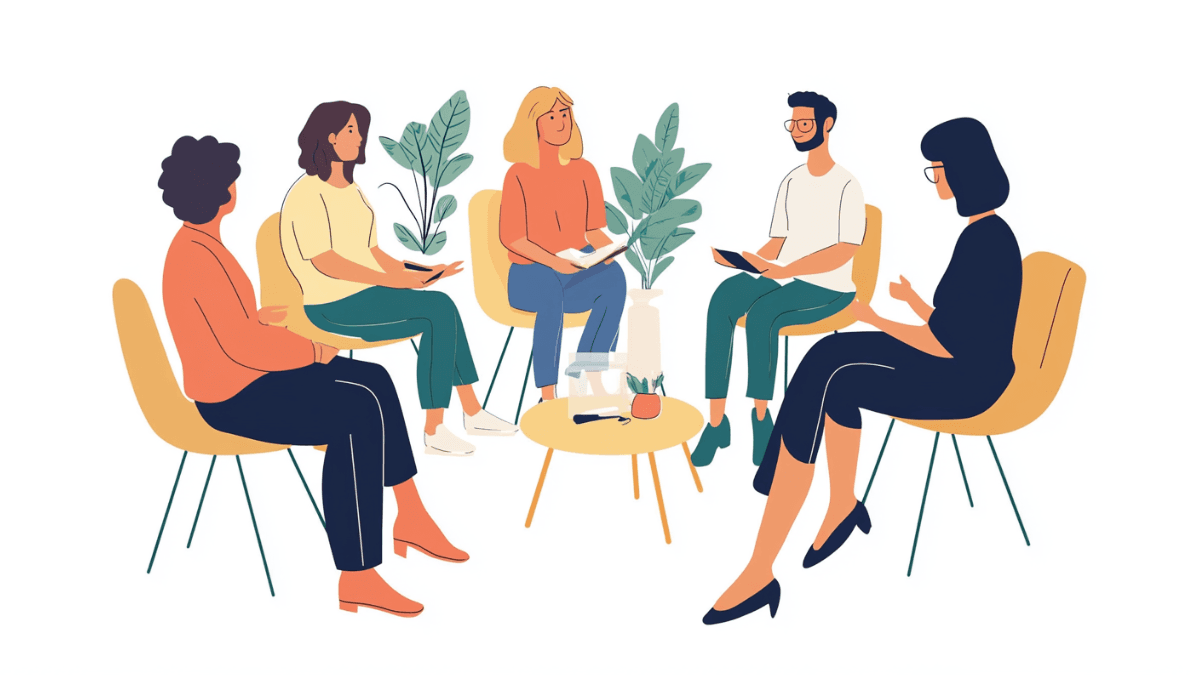Why Every Therapist Needs a Consultation Group


As therapists, we dedicate ourselves to supporting others through their challenges and growth. Yet in our commitment to helping clients, we sometimes overlook our own need for professional support and development. This is where consultation groups become invaluable – they're not just meetings, but lifelines that help us navigate the complexities of therapeutic work while growing as practitioners.
I remember my first years in private practice, feeling the weight of clinical decisions and longing for the collegial support I'd had during my training years. If you've ever felt this way, you're not alone. In fact, recent research shows that while 61% of private practice therapists want to participate in consultation groups, only 25% actually do. This gap between desire and reality speaks volumes about both the recognized value of peer consultation and the barriers we need to address.
The Magic of Small Group Connection
What makes consultation groups so powerful? One study found that small, leaderless groups of 4-6 members create the perfect environment for professional growth. These intimate groups naturally foster improved clinical skills and enhance personal well-being – benefits that become especially crucial for those of us working in isolated settings or rural areas.
Think of it as creating your own professional home base. In these small groups, we can be vulnerable about our challenges, celebrate our successes, and grow together in ways that larger professional settings don't always allow. The research shows that the most effective groups balance structured case discussions with time for emotional processing, all within a framework of mutual respect and confidentiality.
Real Impact on Our Work
The benefits of consultation groups aren't just anecdotal – they're backed by compelling research. This study revealed something fascinating: there's actually a dose-response relationship between consultation hours and treatment effectiveness. Each additional hour therapists spent in consultation improved their adherence to evidence-based protocols, particularly when working with anxiety. The key ingredient? The sense of connection and trust between group members.
Even more encouraging, research by Monson and colleagues showed that therapists participating in consultation groups achieved better outcomes with their trauma clients. Their PTSD clients showed greater symptom reduction compared to clients of therapists working without peer consultation. This makes intuitive sense – when we have a safe space to process our challenging cases and receive feedback, we bring better energy and clarity to our clinical work.
Creating Your Ideal Consultation Experience
Through years of research and practical experience, we've learned what makes consultation groups thrive. The most effective groups share several key characteristics:
They maintain a non-hierarchical structure where everyone's voice matters. They set clear agendas but remain flexible enough to address emerging needs. Most importantly, they strike that delicate balance between supportive encouragement and constructive feedback.
On the flip side, groups tend to struggle when they lean too heavily toward emotional support without making space for constructive feedback, or when they lack the structure needed to keep discussions focused and productive.
Adapting to Our Changing World
If there's one silver lining from the pandemic, it's that we've discovered new ways to connect meaningfully online. Virtual consultation groups, when thoughtfully structured with adequate buffer time between sessions, can be just as effective as in-person meetings at reducing burnout and fostering professional growth. This adaptation has made quality consultation more accessible than ever, especially for therapists in remote areas or those juggling busy schedules.
Taking the First Step
If you're among the many therapists interested in consultation groups but haven't yet found your professional home, consider what you're looking for. Do you want a group focused on a specific modality? Are you looking for weekly connection or monthly deep dives? Would virtual meetings work better for your schedule?
Here at TherapistGroups.com, we've created a space where you can find exactly the right fit for your needs. Whether you're looking to join an existing group or start your own, we provide the framework and tools to make it happen.
Looking Forward
The research is clear: consultation groups aren't just a nice-to-have – they're a crucial component of sustainable, effective practice. They help us maintain our professional edge, prevent burnout, and ultimately provide better care for our clients. Most importantly, they remind us that even in the often-solitary world of therapy, we don't have to go it alone.
Ready to Connect with Other Therapists?
Join a consultation group or create your own to collaborate with peers in your specialty.
